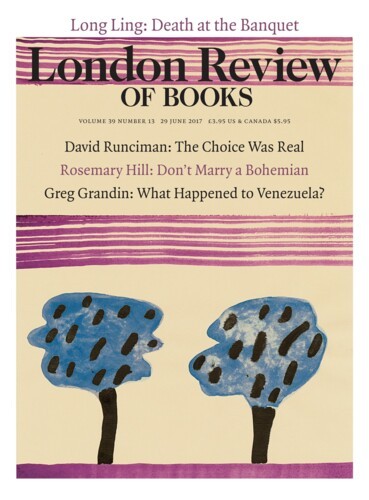Autumn in Paris: Autumn in Paris
Musab Younis, 5 December 2019
On 11 October, Julien Odoul, an official from the Rassemblement National, formerly the Front National, interrupted a French regional council session to ask a woman in the audience either to remove her headscarf or leave. She was a volunteer accompanying children on a school trip. ‘Madame has ample time to wear her veil at home and on the street,’ Odoul said. ‘But not here,...




